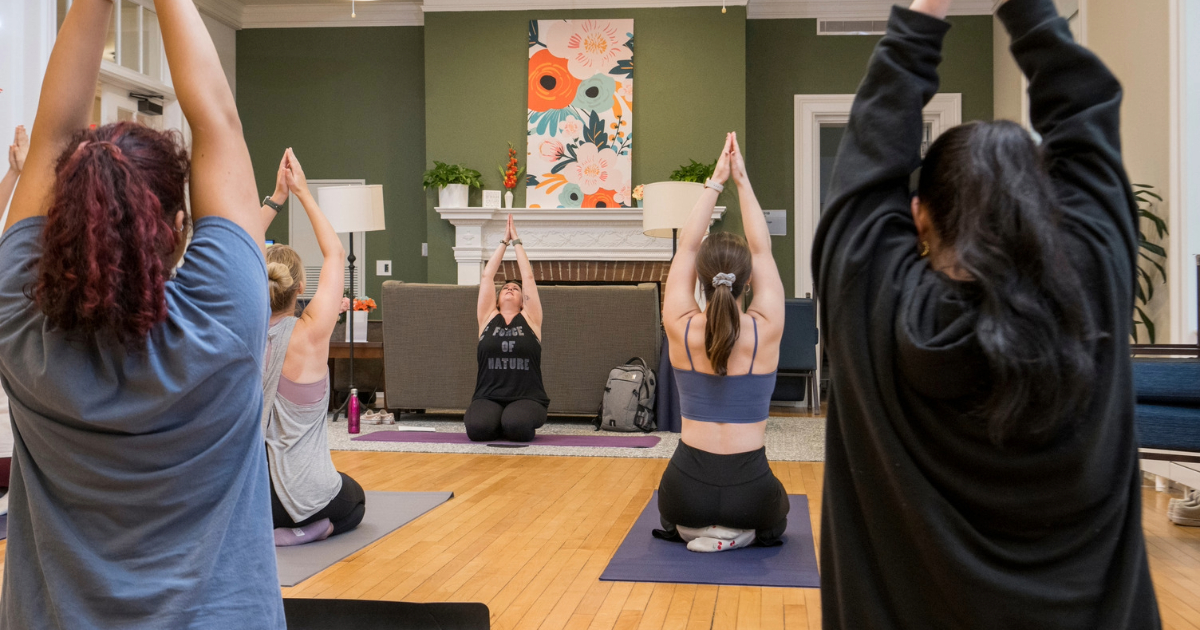

4 Ways to Prioritize Your Wellness This Winter
February 06, 2024 Written by Jessica Downey | Photo by Kathy F. Atkinson
It may be the start of the spring semester, but winter weather is still in full swing for the next few months. During this time of year, it’s important to engage in activities to enrich your physical and mental health.
In the cold and dark, it’s normal to feel changes in your mood, less motivation to complete tasks or socialize, fatigue and a decrease in energy. The Institute for Community Mental Health Clinic shared that the formal diagnosis for these symptoms is major depressive disorder with a seasonal pattern, formerly known as seasonal affective disorder (SAD). The American Psychiatric Association classifies January and February as the most difficult months for this common disorder.
Luckily, there are plenty of ways to cope with the seasonal slump and prioritize your wellness this winter.
Exercise and stay active
The best way to combat the winter blues is to stay physically active, despite the chill. Campus recreation has a full schedule of weekday group fitness classes, including yoga, barre, Pilates, kickboxing, spin classes and more. On Saturdays, group classes are free and rotate class types. Additionally, there are currently 40 unique club sport offerings, ranging from basketball and soccer to archery and figure skating. Want something at a slower pace? Restorative yoga is back this semester for free on Monday evenings from 5–6 p.m. and 7–8 p.m. in Room 101 of Warner Hall. The gentle flow is beginner-friendly and designed with mental healing in mind.
Eat healthy
Choosing healthier food options can improve both your physical and mental wellbeing. When you’re getting less sun, Vitamin-D rich foods like fish, egg yolks and mushrooms are key. Root vegetables like carrots and turnips are beneficial as they can withstand the cold, making them some of the few vegetables you can still buy fresh in the winter months. Avoid sugary and processed snacks, and opt for healthy nuts or citrus fruits that can help boost your immune system. If you need help with finding the right food for you, reach out to nutrition services to schedule an appointment for counseling or education around healthy meal planning.
Get more sleep
How often do you sacrifice a night of sleep in order to study or socialize? Sleep psychologists recommend seven to nine hours of sleep each night, but college students report less than six hours on average. Improving your circadian rhythm—the physical, mental and behavioral changes you experience in a day—is crucial to developing a healthy sleep pattern. Try to go to sleep at roughly the same time every night and wake up around the same time every morning, regardless of your class schedule, and this will help your sleep patterns, as well as your digestion and hormone release. Skip the all-nighter and allow yourself a full night of rest as often as possible—you’ll actually perform better on tests and homework if you sleep more! Research shows that you’re less likely to retain information when sleep-deprived. Is not catching enough Z’s impacting your mood? Reach out to the Center for Counseling and Student Development (CCSD) for mental health support.
Join CCSD groups
Making connections is so important when it comes to your mental wellbeing. CCSD offers several options for group therapy that can help you cope with your specific situation. Some groups meet weekly, including Reclaim Life from Anxiety, a skill-building group where members learn new ways to address anxiety; Graduate Student Understanding Self and Others, a group for grad students addressing depression, anxiety, relationships and more; First Steps Forward, dedicated to learning how trauma impacts the brain and how to build positive coping skills; and Lavender Chats, a support group for students who identify as LGBTQIA+. Other workshops have limited dates, including Snack Group, a three-session workshop aimed to improve your relationship with food; Open Art Studio, an art-based creative processing group; and Koru, a four-session workshop for beginners about meditation. For more information on how to register, group locations and dates, deadlines and details about pre-screening, fill out this Qualtrics survey with your information.
